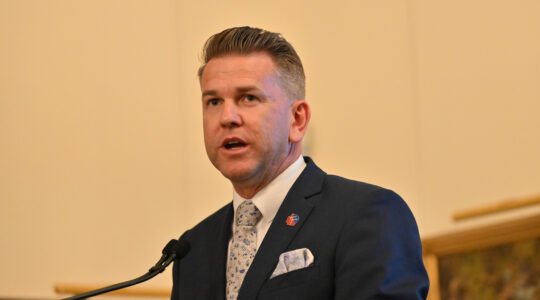Companies have been urged to ensure their managers have the right people skills to avoid falling foul of workplace psychosocial safety requirements.
McCullough Robertson Lawyers Partner Tom Reaburn said almost all jurisdictions had introduced codes of practice on this aspect of workplace safety in recent years.
These codes, and associated legislation, were increasingly being used as an “industrial sword” in workplace dispute cases.
Mr Reaburn said hazards around psychosocial safety could rarely be completely eliminated. The best way to address them was to have better people leaders and ensure managers were properly trained.
“Ensuring people are happy at work comes down in a very large part to how their bosses treat them,” he said.
“If you have really sophisticated people leaders you will be compliant under this law.
“If you have micromanagers, hot heads and managers who don’t give a lot of direction or who turn a blind eye to things, that builds a culture of psychosocial unsafeness.”
Mr Reaburn said the laws did not require all workplace hazards to be eliminated – that would require the elimination of humans from work. The risks just had to be managed responsibly.
“For example, heights can’t be eliminated when you are building a high-rise and, for some industries, working long hours can never be eliminated,” he said.
“It’s not a blanket rule that you can’t work long hours but if your work does involve long hours you need to have a sophisticated way of being satisfied that there are appropriate controls in place to manage the psychosocial risk.
“You need to empower your people leaders to understand this stuff.”
Mr Reaburn said these “sophisticated” controls might mean ensuring that people had a genuine opportunity to switch off and take proper leave when they were not working.
He said the duty to protect the psychosocial safety of workers had always existed, but generational changes and the COVID-19 pandemic had placed extra emphasis on this aspect of workplace safety.
“Generation Z and Millennials have different expectations about how they will work and where they will work,” he said.
“They are also more willing to voice unhappiness with psychologically unsafe working environments.
“For baby boomer and Generation X managers, there is a risk in making cynical remarks like ‘suck it up’ or ‘that’s how it’s always been’. Those type of comments and attitudes put in an affidavit are rolled gold evidence of psychosocial breaches and that’s an area where we do a lot of training.”
These types of psychosocial cases were increasingly being used by unions as an “industrial sword” in performance management or misconduct management cases, with workers claiming their actions were linked to feeling unsafe at work.
There were also fresh challenges in managing workers who spent a lot of time working at home.
Mr Reaburn said managers were often best placed to observe psychological decline in workers.
“People coming in looking stressed are in a large part observable in a physical office,” he said.
“If they are working at home the signs will not be so obvious. Organisations really need to check in regularly to make sure their people are feeling psychologically safe regardless of where they are working.”
Mr Reaburn said the requirements of managing people would continue to evolve.
“Managers need to constantly reflect on the way they manage,” he said. “This includes not having an immediate reaction that ‘this is all woke nonsense – I’m not going to change’.
“Good managers need to accept that this area is always changing, and they need to flexible enough to change with it.”
For more information can be found on the McCullough Robertson Lawyers








